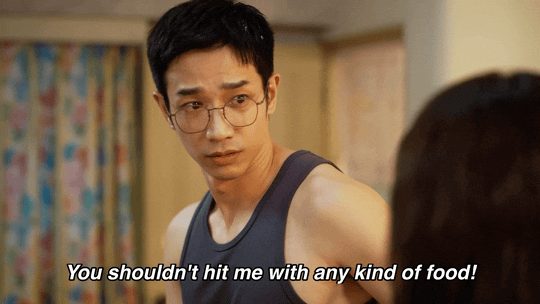Text
I can't do much but maybe this will interest someone. This cookbook is by a classically trained autistic chef, made for people with sensory issues. It's sold 1/6th of its initial run because apparently no one wants to have an autistic person interviewed on TV.
Apparently it's also very funny.
Spread this around! I bet someone here can use this.
25K notes
·
View notes
Photo

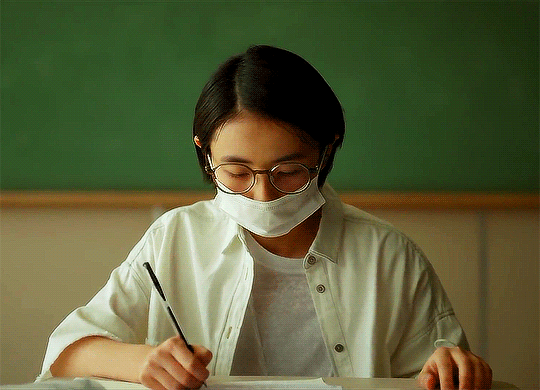
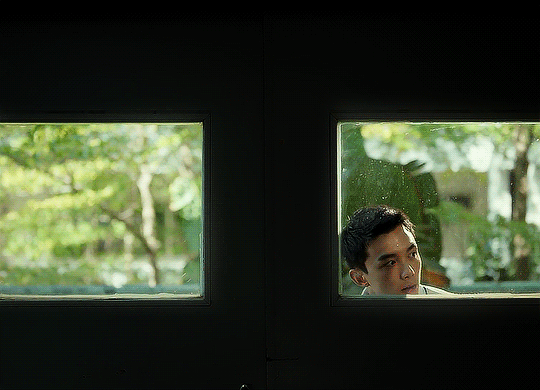
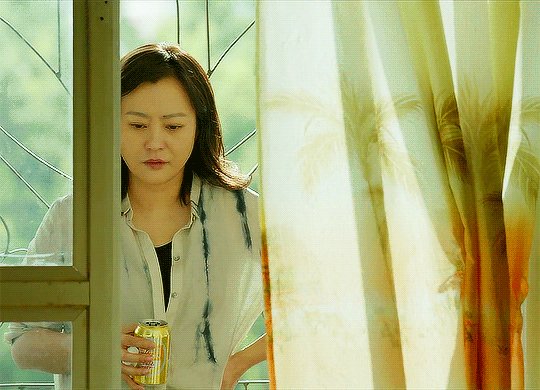

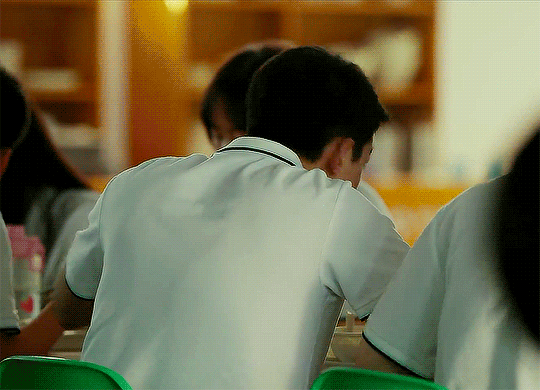
“I wish that we can face ourselves more honestly and we can become braver.” Upcoming Summer 盛夏未来 (2021) dir. Leste Chen
140 notes
·
View notes
Photo






“I wish that we can face ourselves more honestly and we can become braver.” Upcoming Summer 盛夏未来 (2021) dir. Leste Chen
140 notes
·
View notes
Text






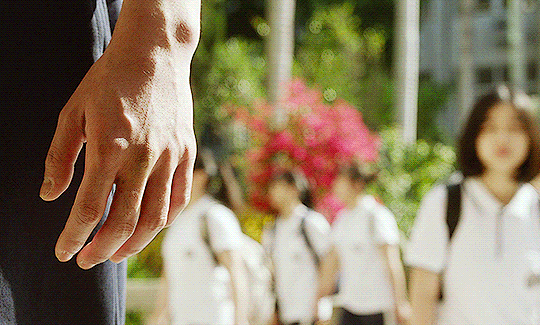



FILMS in 2024: 96 | Upcoming Summer 盛夏未来 (2021) — dir. Leste Chen
90 notes
·
View notes
Text
literally bawling at 1am atp.
Anyone else watching Heavenly Ever After and bawling like a newborn after every episode 😭😭
48 notes
·
View notes
Text
Heavenly Ever After continues to be a great source of laughter cause what on earth was that cgi dancing dog
35 notes
·
View notes
Text
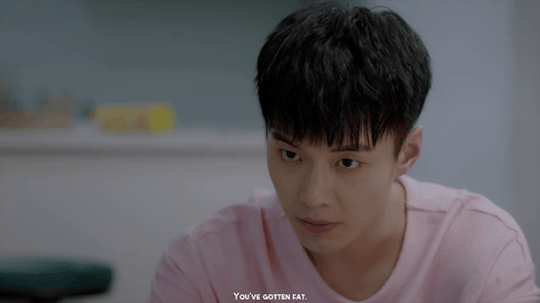









My Fated Boy 1x02
15 notes
·
View notes
Text
Spoke to a gen z person the other night and apparently the young folks don't know about the very legal sites from which you can access public domain media (including Dracula, The Strange Case of Dr. Jekyll and Mr. Hyde, and other Victorian gothic horror stories)?
Like this young person didn't even know about goddamn Gutenberg which is a SHAME. I linked to it and they went "aw yiss time to do a theft" and I was like "I mean yo ho ho and all that, sure, but. you know gutenberg is entirely legal, right?"
Anyway I'm gonna put this in a few Choice Tags (sorry dracula fans I DID mention it though so it's fair game) and then put some Cool Links in a reblog so this post will still show UP in said tags lmao.
128K notes
·
View notes
Photo




Love The Way You Are (2019)
#rewatched for the second time today#nobody will do it like them sigh#love the way you are#cmovie#not mine
53 notes
·
View notes
Text
Found out in an interview Anthony Mackie shared he had no idea at the end of End Game he would be given the shield. He thought he was going to be killed off when asked about it from a writer. He says "Being black I assumed I was gonna get killed off."
And he was immediately worried and sad until they took him into a writing room to show him the script and to read the ending scene for the first time. To which he of course was ecstatic and over the moon happy losing it.
It definitely says a lot about why it's so important he got the role. Even as important his character is and how talented he is deep down he assumed he'd be killed off and no longer needed for the story. And instead was given the mantle! Taking up something like this so unexpectedly is insane and being able to step up and do it is even crazier
We need so many more and this is such a great addition
50 notes
·
View notes
Text
This is huge: You can now buy ebooks from Bookshop.org, a website that helps boost sales to local independent bookshops!
To read an ebook purchased from Bookshop.org, you must use their own app (for a mobile device) or read it in a web browser. So, unfortunately, you can't (yet) send it to your ereader, but still, you're able to buy ebooks and also share a little bit of that profit with your local bookstore, if they're an affiliate!
6K notes
·
View notes
Text
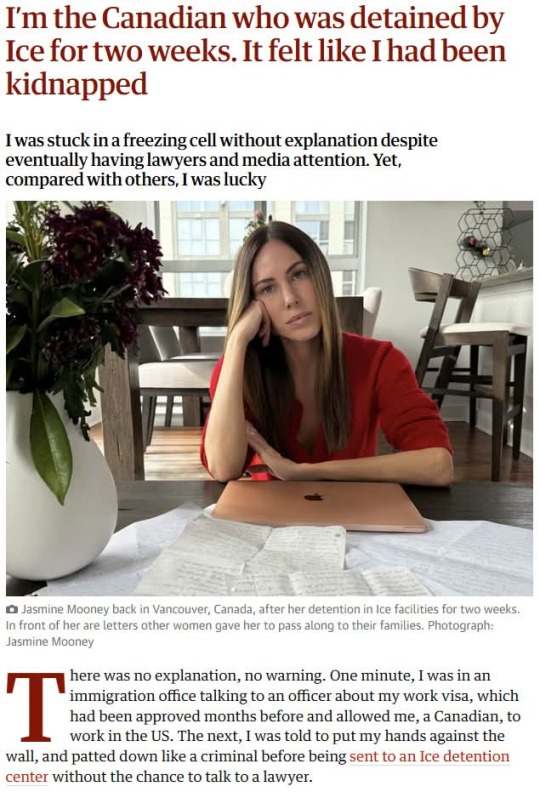
Story below the cut to avoid a paywall.
There was no explanation, no warning. One minute, I was in an immigration office talking to an officer about my work visa, which had been approved months before and allowed me, a Canadian, to work in the US. The next, I was told to put my hands against the wall, and patted down like a criminal before being sent to an Ice detention center without the chance to talk to a lawyer.
I grew up in Whitehorse, Yukon, a small town in the northernmost part of Canada. I always knew I wanted to do something bigger with my life. I left home early and moved to Vancouver, British Columbia, where I built a career spanning multiple industries – acting in film and television, owning bars and restaurants, flipping condos and managing Airbnbs.
In my 30s, I found my true passion working in the health and wellness industry. I was given the opportunity to help launch an American brand of health tonics called Holy! Water – a job that would involve moving to the US.
I was granted my trade Nafta work visa, which allows Canadian and Mexican citizens to work in the US in specific professional occupations, on my second attempt. It goes without saying, then, that I have no criminal record. I also love the US and consider myself to be a kind, hard-working person.
I started working in California and travelled back and forth between Canada and the US multiple times without any complications – until one day, upon returning to the US, a border officer questioned me about my initial visa denial and subsequent visa approval. He asked why I had gone to the San Diego border the second time to apply. I explained that that was where my lawyer’s offices were, and that he had wanted to accompany me to ensure there were no issues.
After a long interrogation, the officer told me it seemed “shady” and that my visa hadn’t been properly processed. He claimed I also couldn’t work for a company in the US that made use of hemp – one of the beverage ingredients. He revoked my visa, and told me I could still work for the company from Canada, but if I wanted to return to the US, I would need to reapply.
I was devastated; I had just started building a life in California. I stayed in Canada for the next few months, and was eventually offered a similar position with a different health and wellness brand.
I restarted the visa process and returned to the same immigration office at the San Diego border, since they had processed my visa before and I was familiar with it. Hours passed, with many confused opinions about my case. The officer I spoke to was kind but told me that, due to my previous issues, I needed to apply for my visa through the consulate. I told her I hadn’t been aware I needed to apply that way, but had no problem doing it.
Then she said something strange: “You didn’t do anything wrong. You are not in trouble, you are not a criminal.”
I remember thinking: Why would she say that? Of course I’m not a criminal!
She then told me they had to send me back to Canada. That didn’t concern me; I assumed I would simply book a flight home. But as I sat searching for flights, a man approached me.
“Come with me,” he said.
There was no explanation, no warning. He led me to a room, took my belongings from my hands and ordered me to put my hands against the wall. A woman immediately began patting me down. The commands came rapid-fire, one after another, too fast to process.
They took my shoes and pulled out my shoelaces.
“What are you doing? What is happening?” I asked.
“You are being detained.”
“I don’t understand. What does that mean? For how long?”
“I don’t know.”
That would be the response to nearly every question I would ask over the next two weeks: “I don’t know.”
They brought me downstairs for a series of interviews and medical questions, searched my bags and told me I had to get rid of half my belongings because I couldn’t take everything with me.
“Take everything with me where?” I asked.
A woman asked me for the name of someone they could contact on my behalf. In moments like this, you realize you don’t actually know anyone’s phone number anymore. By some miracle, I had recently memorized my best friend Britt’s number because I had been putting my grocery points on her account.
I gave them her phone number.
They handed me a mat and a folded-up sheet of aluminum foil.
“What is this?”
“Your blanket.”
“I don’t understand.”
I was taken to a tiny, freezing cement cell with bright fluorescent lights and a toilet. There were five other women lying on their mats with the aluminum sheets wrapped over them, looking like dead bodies. The guard locked the door behind me.
For two days, we remained in that cell, only leaving briefly for food. The lights never turned off, we never knew what time it was and no one answered our questions. No one in the cell spoke English, so I either tried to sleep or meditate to keep from having a breakdown. I didn’t trust the food, so I fasted, assuming I wouldn’t be there long.
On the third day, I was finally allowed to make a phone call. I called Britt and told her that I didn’t understand what was happening, that no one would tell me when I was going home, and that she was my only contact.
They gave me a stack of paperwork to sign and told me I was being given a five-year ban unless I applied for re-entry through the consulate. The officer also said it didn’t matter whether I signed the papers or not; it was happening regardless.
I was so delirious that I just signed. I told them I would pay for my flight home and asked when I could leave.
No answer.
Then they moved me to another cell – this time with no mat or blanket. I sat on the freezing cement floor for hours. That’s when I realized they were processing me into real jail: the Otay Mesa Detention Center.
I was told to shower, given a jail uniform, fingerprinted and interviewed. I begged for information.
“How long will I be here?”
“I don’t know your case,” the man said. “Could be days. Could be weeks. But I’m telling you right now – you need to mentally prepare yourself for months.”
Months.
I felt like I was going to throw up.
I was taken to the nurse’s office for a medical check. She asked what had happened to me. She had never seen a Canadian there before. When I told her my story, she grabbed my hand and said: “Do you believe in God?”
I told her I had only recently found God, but that I now believed in God more than anything.
“I believe God brought you here for a reason,” she said. “I know it feels like your life is in a million pieces, but you will be OK. Through this, I think you are going to find a way to help others.”
At the time, I didn’t know what that meant. She asked if she could pray for me. I held her hands and wept.
I felt like I had been sent an angel.
I was then placed in a real jail unit: two levels of cells surrounding a common area, just like in the movies. I was put in a tiny cell alone with a bunk bed and a toilet.
The best part: there were blankets. After three days without one, I wrapped myself in mine and finally felt some comfort.
For the first day, I didn’t leave my cell. I continued fasting, terrified that the food might make me sick. The only available water came from the tap attached to the toilet in our cells or a sink in the common area, neither of which felt safe to drink.
Eventually, I forced myself to step out, meet the guards and learn the rules. One of them told me: “No fighting.”
“I’m a lover, not a fighter,” I joked. He laughed.
I asked if there had ever been a fight here.
“In this unit? No,” he said. “No one in this unit has a criminal record.”
That’s when I started meeting the other women.
That’s when I started hearing their stories.
And that’s when I made a decision: I would never allow myself to feel sorry for my situation again. No matter how hard this was, I had to be grateful. Because every woman I met was in an even more difficult position than mine.
There were around 140 of us in our unit. Many women had lived and worked in the US legally for years but had overstayed their visas – often after reapplying and being denied. They had all been detained without warning.
If someone is a criminal, I agree they should be taken off the streets. But not one of these women had a criminal record. These women acknowledged that they shouldn’t have overstayed and took responsibility for their actions. But their frustration wasn’t about being held accountable; it was about the endless, bureaucratic limbo they had been trapped in.
The real issue was how long it took to get out of the system, with no clear answers, no timeline and no way to move forward. Once deported, many have no choice but to abandon everything they own because the cost of shipping their belongings back is too high.
I met a woman who had been on a road trip with her husband. She said they had 10-year work visas. While driving near the San Diego border, they mistakenly got into a lane leading to Mexico. They stopped and told the agent they didn’t have their passports on them, expecting to be redirected. Instead, they were detained. They are both pastors.
I met a family of three who had been living in the US for 11 years with work authorizations. They paid taxes and were waiting for their green cards. Every year, the mother had to undergo a background check, but this time, she was told to bring her whole family. When they arrived, they were taken into custody and told their status would now be processed from within the detention center.
Another woman from Canada had been living in the US with her husband who was detained after a traffic stop. She admitted she had overstayed her visa and accepted that she would be deported. But she had been stuck in the system for almost six weeks because she hadn’t had her passport. Who runs casual errands with their passport?
One woman had a 10-year visa. When it expired, she moved back to her home country, Venezuela. She admitted she had overstayed by one month before leaving. Later, she returned for a vacation and entered the US without issue. But when she took a domestic flight from Miami to Los Angeles, she was picked up by Ice and detained. She couldn’t be deported because Venezuela wasn’t accepting deportees. She didn’t know when she was getting out.
There was a girl from India who had overstayed her student visa for three days before heading back home. She then came back to the US on a new, valid visa to finish her master’s degree and was handed over to Ice due to the three days she had overstayed on her previous visa.
There were women who had been picked up off the street, from outside their workplaces, from their homes. All of these women told me that they had been detained for time spans ranging from a few weeks to 10 months. One woman’s daughter was outside the detention center protesting for her release.
That night, the pastor invited me to a service she was holding. A girl who spoke English translated for me as the women took turns sharing their prayers – prayers for their sick parents, for the children they hadn’t seen in weeks, for the loved ones they had been torn away from.
Then, unexpectedly, they asked if they could pray for me. I was new here, and they wanted to welcome me. They formed a circle around me, took my hands and prayed. I had never felt so much love, energy and compassion from a group of strangers in my life. Everyone was crying.
At 3am the next day, I was woken up in my cell.
“Pack your bag. You’re leaving.”
I jolted upright. “I get to go home?”
The officer shrugged. “I don’t know where you’re going.”
Of course. No one ever knew anything.
I grabbed my things and went downstairs, where 10 other women stood in silence, tears streaming down their faces. But these weren’t happy tears. That was the moment I learned the term “transferred”.
For many of these women, detention centers had become a twisted version of home. They had formed bonds, established routines and found slivers of comfort in the friendships they had built. Now, without warning, they were being torn apart and sent somewhere new. Watching them say goodbye, clinging to each other, was gut-wrenching.
I had no idea what was waiting for me next. In hindsight, that was probably for the best.
Our next stop was Arizona, the San Luis Regional Detention Center. The transfer process lasted 24 hours, a sleepless, grueling ordeal. This time, men were transported with us. Roughly 50 of us were crammed into a prison bus for the next five hours, packed together – women in the front, men in the back. We were bound in chains that wrapped tightly around our waists, with our cuffed hands secured to our bodies and shackles restraining our feet, forcing every movement into a slow, clinking struggle.
When we arrived at our next destination, we were forced to go through the entire intake process all over again, with medical exams, fingerprinting – and pregnancy tests; they lined us up in a filthy cell, squatting over a communal toilet, holding Dixie cups of urine while the nurse dropped pregnancy tests in each of our cups. It was disgusting.
We sat in freezing-cold jail cells for hours, waiting for everyone to be processed. Across the room, one of the women suddenly spotted her husband. They had both been detained and were now seeing each other for the first time in weeks.
The look on her face – pure love, relief and longing – was something I’ll never forget.
We were beyond exhausted. I felt like I was hallucinating.
The guard tossed us each a blanket: “Find a bed.”
There were no pillows. The room was ice cold, and one blanket wasn’t enough. Around me, women lay curled into themselves, heads covered, looking like a room full of corpses. This place made the last jail feel like the Four Seasons.
I kept telling myself: Do not let this break you.
Thirty of us shared one room. We were given one Styrofoam cup for water and one plastic spoon that we had to reuse for every meal. I eventually had to start trying to eat and, sure enough, I got sick. None of the uniforms fit, and everyone had men’s shoes on. The towels they gave us to shower were hand towels. They wouldn’t give us more blankets. The fluorescent lights shined on us 24/7.
Everything felt like it was meant to break you. Nothing was explained to us. I wasn’t given a phone call. We were locked in a room, no daylight, with no idea when we would get out.
I tried to stay calm as every fiber of my being raged towards panic mode. I didn’t know how I would tell Britt where I was. Then, as if sent from God, one of the women showed me a tablet attached to the wall where I could send emails. I only remembered my CEO’s email from memory. I typed out a message, praying he would see it.
He responded.
Through him, I was able to connect with Britt. She told me that they were working around the clock trying to get me out. But no one had any answers; the system made it next to impossible. I told her about the conditions in this new place, and that was when we decided to go to the media.
She started working with a reporter and asked whether I would be able to call her so she could loop him in. The international phone account that Britt had previously tried to set up for me wasn’t working, so one of the other women offered to let me use her phone account to make the call.
We were all in this together.
With nothing to do in my cell but talk, I made new friends – women who had risked everything for the chance at a better life for themselves and their families.
Through them, I learned the harsh reality of seeking asylum. Showing me their physical scars, they explained how they had paid smugglers anywhere from $20,000 to $60,000 to reach the US border, enduring brutal jungles and horrendous conditions.
One woman had been offered asylum in Mexico within two weeks but had been encouraged to keep going to the US. Now, she was stuck, living in a nightmare, separated from her young children for months. She sobbed, telling me how she felt like the worst mother in the world.
Many of these women were highly educated and spoke multiple languages. Yet, they had been advised to pretend they didn’t speak English because it would supposedly increase their chances of asylum.
Some believed they were being used as examples, as warnings to others not to try to come.
Women were starting to panic in this new facility, and knowing I was most likely the first person to get out, they wrote letters and messages for me to send to their families.
It felt like we had all been kidnapped, thrown into some sort of sick psychological experiment meant to strip us of every ounce of strength and dignity.
We were from different countries, spoke different languages and practiced different religions. Yet, in this place, none of that mattered. Everyone took care of each other. Everyone shared food. Everyone held each other when someone broke down. Everyone fought to keep each other’s hope alive.
I got a message from Britt. My story had started to blow up in the media.
Almost immediately after, I was told I was being released.
My Ice agent, who had never spoken to me, told my lawyer I could have left sooner if I had signed a withdrawal form, and that they hadn’t known I would pay for my own flight home.
From the moment I arrived, I begged every officer I saw to let me pay for my own ticket home. Not a single one of them ever spoke to me about my case.
To put things into perspective: I had a Canadian passport, lawyers, resources, media attention, friends, family and even politicians advocating for me. Yet, I was still detained for nearly two weeks.
Imagine what this system is like for every other person in there.
A small group of us were transferred back to San Diego at 2am – one last road trip, once again shackled in chains. I was then taken to the airport, where two officers were waiting for me. The media was there, so the officers snuck me in through a side door, trying to avoid anyone seeing me in restraints. I was beyond grateful that, at the very least, I didn’t have to walk through the airport in chains.
To my surprise, the officers escorting me were incredibly kind, and even funny. It was the first time I had laughed in weeks.
I asked if I could put my shoelaces back on.
“Yes,” one of them said with a grin. “But you better not run.”
“Yeah,” the other added. “Or we’ll have to tackle you in the airport. That’ll really make the headlines.”
I laughed, then told them I had spent a lot of time observing the guards during my detention and I couldn’t believe how often I saw humans treating other humans with such disregard. “But don’t worry,” I joked. “You two get five stars.”
When I finally landed in Canada, my mom and two best friends were waiting for me. So was the media. I spoke to them briefly, numb and delusional from exhaustion.
It was surreal listening to my friends recount everything they had done to get me out: working with lawyers, reaching out to the media, making endless calls to detention centers, desperately trying to get through to Ice or anyone who could help. They said the entire system felt rigged, designed to make it nearly impossible for anyone to get out.
The reality became clear: Ice detention isn’t just a bureaucratic nightmare. It’s a business. These facilities are privately owned and run for profit.
Companies like CoreCivic and GEO Group receive government funding based on the number of people they detain, which is why they lobby for stricter immigration policies. It’s a lucrative business: CoreCivic made over $560m from Ice contracts in a single year. In 2024, GEO Group made more than $763m from Ice contracts.
The more detainees, the more money they make. It stands to reason that these companies have no incentive to release people quickly. What I had experienced was finally starting to make sense.

16K notes
·
View notes
Text
mother & son duo - who could ever beat themmmm
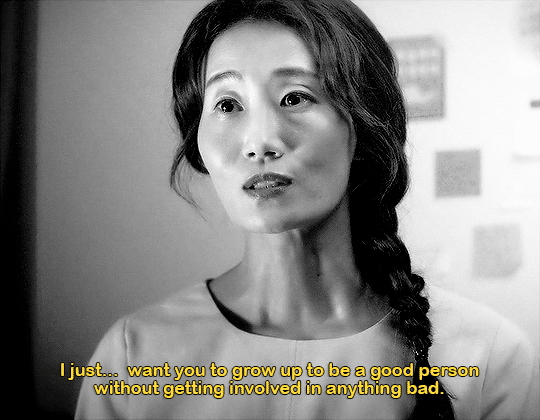





🎒 ga min and jeon mi hyeon for @alltomevibes STUDY GROUP (2025)
#not mine#study group#annagifs#😭the ask disappearing and you still DELIEVERING?? *chefs kiss* cause this is exactly what i wanted
28 notes
·
View notes
Text
had an experience today where a person was just being a person and this was such a nice reminder both for my own actions and for the actions that person took today.
Learning to love like Jesus - People just be peopling

So, I really thought I was going to sit down and write out some long post about people out doing them. You know, people just peopling in life the best way they know how. Something on how we can get hurt when people... people. As I thought about what I was going to say it hit me... For the first time in a very long time - I am unbothered by people peopling. I am not sure when it happened really or if it was something that was on the rise and like a glass as it fills with water. The spilling point was today (Jan 26th). Something clicked, a light went off, a scale was removed from my eyes.
1 Corinthians 13
1Though I speak with the tongues of men and of angels, and have not charity, I am become as sounding brass, or a tinkling cymbal. 2And though I have the gift of prophecy, and understand all mysteries, and all knowledge; and though I have all faith, so that I could remove mountains, and have not charity, I am nothing. 3And though I bestow all my goods to feed the poor, and though I give my body to be burned, and have not charity, it profiteth me nothing.
The Lord has allowed me to see the demon behind the actions of people and I am fully aware that broken people break people. That is just what we do. The unfortunate part is that we can only give what we have. If we have been fed toxic love languages since the day we were born - it is safe to say that we will not be able to give to others anything but toxicity. Even more disheartening is the fact that in our pride most of us will never admit that we don't know what we are doing.
Does it hurt? Yes. When I say I am unbothered - I mean to say; That is not me. If I act the same way, I am the same. God gave all creation the gift of free will and each day we decide how we are going to spend the currency of grace in our lives. Will we do wickedly with the freedom we have been given, or will we choose to follow daily in the footsteps of our King and Master Jesus? The way is narrow - few there be that find it and enter in.
4Charity suffereth long, and is kind; charity envieth not; charity vaunteth not itself, is not puffed up, 5Doth not behave itself unseemly, seeketh not her own, is not easily provoked, thinketh no evil; 6Rejoiceth not in iniquity, but rejoiceth in the truth; 7Beareth all things, believeth all things, hopeth all things, endureth all things.
The truth is this - Each generation is passing down the pain of the past to the younger. In doing so, we pour new life into the spirit behind the behavior. In essence we offer fresh blood to an old family friend if you will. This both sickens me and makes me want to break down in tears. The idea that we unwittingly feed into the world and all the horror that happens here. It is more than I can bear if I am going to be honest. However, this is what happens.
Too often we become the evil we hate instead of finding a different way. After all, it is the only thing we understand. Sadly, as I said above, more often than not we don't even realize what we are doing - on a large scale. Yes, we can comprehend the fact that we hurt someone but to understand the full impact of our actions on a person - most of the time we just can't.
Why do we hurt the ones we love? Somehow, out of the sea of people in the world, we choose a human and then we do all we can to push that person away. We pull out all the tricks and all the attitude - as if to say; "You asked for it." When in reality the truth is more the fact that we don't like ourselves and can't believe that someone else would. So, in return we act a fool to push the other person away and cry in our tea or coffee when our human has had enough and really does leave. Why do we do this?
8Charity never faileth: but whether there be prophecies, they shall fail; whether there be tongues, they shall cease; whether there be knowledge, it shall vanish away. 9For we know in part, and we prophesy in part. 10But when that which is perfect is come, then that which is in part shall be done away. 11When I was a child, I spake as a child, I understood as a child, I thought as a child: but when I became a man, I put away childish things. 12For now we see through a glass, darkly; but then face to face: now I know in part; but then shall I know even as also I am known. 13And now abideth faith, hope, charity, these three; but the greatest of these is charity.
It's almost like we WANT our human to hate us as much as we hate ourselves. So, we will do or say things to push them away. For what reason? I think it is so we can prove to ourselves once and for all that we really are not loveable and every nasty thing anyone has ever said about us is true. Better the devil you know than the devil you don't and in a world that teaches us to hate ourselves - it's easier to believe there is something wrong with us rather than believe what the Lord has to say about us.
It's like we take all our bad and roll it into a ball and throw it at the ones we love and expect them to never leave us. We expect from them what we can only get from God. After all, He is the only one that can actually do anything about all that bad stuff anyways. God said He will not be mocked. We will reap what we sow. Meaning what we put out is exactly what we are going to get back. If we give love, we will get love. If we give hate, we will receive hate and so on.
Me: "Father, I love my life."
Father: "Then start acting like it."
Me: "Wait, what?"
Love is the day that never ends - the life on a loop if you will. The daily tasks that seem to never end *coughs - laundry. Cough, cough - dishes. It is the getting up and going to work no matter how we feel or what that means for us. (Housewives work equally as hard as the 9 to 5 husband.) The list of love actions is as endless as we are different.
Love is kind actions and words - even though all you really want to do is throttle them for their stupid. Love helps sober a person, detox a body from drugs, it is there for all the vomit, all the mood swings, all the night sweats and body pains. Love is 2 a.m feedings and diaper changes and teething months. Love is all the actions we do on a daily basis or not.
Jesus never offended others by serving Himself. He didn't seem bothered by people who were upset over the truth. However, he never went about serving Himself. He did always the will of the Father. He didn't live for Him - He lived for us. While here in the flesh, He healed our sicknesses, took away our demons and disabilities and in death - He took all the punishment for every sin ever committed - past, present and future. He lived a life for the good of others and not for Him.
He lived a life for others and not for Himself.
Do you love that individual? That is the real question. Jesus did not die for us because of our great love for Him. God did not sacrifice His Only Begotten Son for a world that cried out with voices - declaring their undying love. No, He died for a world that hated Him and abused Him. God did what He did because HE LOVED US.
Do you love the person? If your answer is no - maybe that is the root of all the problems that you have. If your answer is yes - how do you show it? Faith without works is dead and the same can be said about any relationship. Love without works is a dead love.
I can tell my husband all day long that I love him and I care about his well-being. However, if I never take care of him when he is sick and I allow him to struggle to make sure he has all his work clothes washed and he comes home to a trashed home and ratty kids AND I am "bratty"- Do you think he will feel loved? No. I think not, not one single bit. In fact - he might start to think I didn't like him very much.
The same can be said about a wife. Husband, you speak harshly to your wife and kids because your "just having a bad day." You complain about dinner and never once say thank you for the work she did that day or noticed how clean the house is. Everything you say is a direct reflection of the no-good terrible day you had. Does she feel loved? Have you acted out love towards your family?
When we offer our families the worst of us - it sends a very poor message - even if you didn't mean it too. Everyone deserves to live in a space where they are loved, understood, safe and feel secure to be them - everyone. Let's all challenge ourselves today to be the best version of ourselves - No matter how other people are acting. Just for today and see what happens. Don't worry if things feel like they are getting worse before they get better. Satan is in the lawn of your promise - just like a snake.
Your kindness will heap piles of burning coals on the heads of your enemies. Have you ever seen a person burned by a hot coal? You can imagine the individual would not be happy, still or saying sweet things about you. No, your angels will irritate their demons and just as if you tossed hot coals on a person - they will lash out at you with all they have. Satan will work through ANY that don't belong to Jesus. This too is painful to endure but the reward for sticking to your guns and walking the narrow road - priceless!
When we wake tomorrow, again we will choose to walk in the footsteps of Jesus or not. We will challenge ourselves yet again to be better today than we were yesterday and better tomorrow than today or we won't. As for me and my house we will serve the Lord. Loving people in spite of themselves is hard at times but it is what we are called to do. After all we want the Father to love us in spite of us.

Source: Learning to love like Jesus - People just be peopling
41 notes
·
View notes
Text
Grandma is playing checkers but Ban Ju-Hyeon is playing chess fr. Idk what grandma thought this was
13 notes
·
View notes


